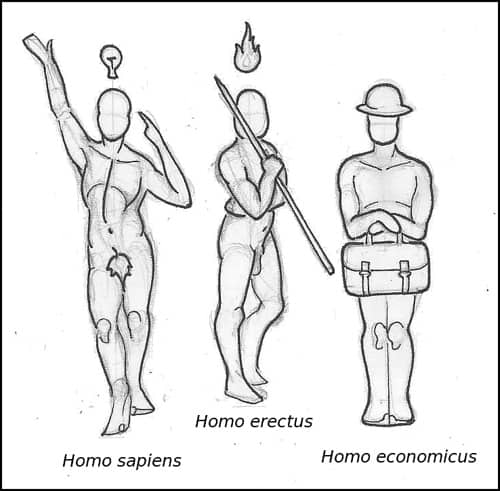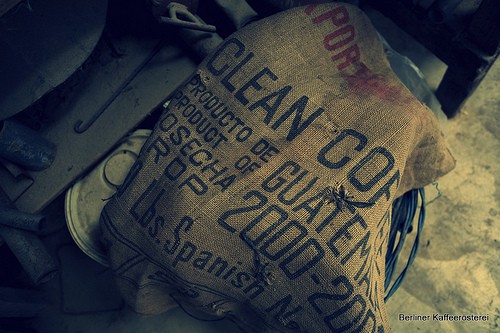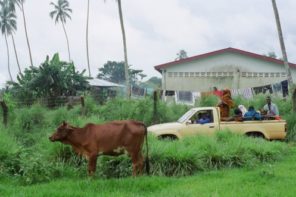This is the second part in our Special Review section of Edward Fischer‘s book The Good Life: Aspiration, Dignity, and the Anthropology of Wellbeing. Here you can find the first part.
This book is exemplary of the growing grey and academic literature proliferating around the notions of ‘wellbeing’ and ‘the good life’, concepts that are currently enjoying attention in policy and academic circles. What Fischer’s detailed account shows, among other important things, is that while this attention is very positive, it has also brought to the fore the problematic and contested nature of these terms, which remain ill-defined and under-conceptualised in mainstream literature. The book makes for an engaging read and provides much food for thought. The empirical cases are fascinating and I applaud the author’s ability to link empirical data with broader, scholarly discussions on complex, controversial, and much-discussed topics such as development and poverty relief; homo economicus and markets; fair trade and ethical consumption to mention just a few.
It is difficult to disagree with the overall argument of the book that “we should understand the ends of economics, as well as politics, to be provisioning the good life as widely as possible for people as they themselves conceive it” and that ideas of wellbeing across cultures “cannot be reduced to material conditions alone” (p. 1).
However, and despite all the good intentions of the author, I was not convinced that wellbeing is not reduced to material conditions alone in this book, since its whole debate is framed within the realm of the economy.
This is consistent with the book’s explicit aim to show “how people engage the market to pursue their own visions of wellbeing” (p. 1). There is no justification as to why a discussion of people’s understandings of wellbeing and the ‘good life’ – both in Germany and in Guatemala – should be framed within economic and market discussions, other than the belief that “the market constitutes a key venue through which people pursue the projects of their lives and their visions of the good life” (p. 211). If you agree with this starting point, then the book makes a convincing and compelling argument that “improving material conditions of the poor is a means to a greater end, namely the ability to leave a life they themselves value” (p. 144). I disagree with this starting point and think there are dangers attached to it, which I can only mention – rather than discuss – below for reasons of space.
The main problem such a view raises is the assumption that people everywhere in the world value their life mainly in terms of material conditions and possessions.
That basic material needs must be met for ‘life’ to exist at all is obvious and I will not discuss it. But to assume that improved material conditions are the key means through which all citizens of the world achieve the life they want in my view means imposing a particular (Western) view of wellbeing, and an intellectual order upon the particular group subject of study.
Secondly, such views justify the existence of ‘development’ in the South and governments’ emphasis on economic growth worldwide as the solution to global crisis. Thirdly, it seems to ignore the evidence that economic growth and its fuelling of consumption is not only unsustainable, but that it is the primary cause of environmental degradation. More importantly, fourthly, it can lead to take authority away from ‘other’ views of the good life based – for example – upon ancestral knowledge rather than on progress, as is the case of the original Quichua and Aymara notions of sumac kawsay and suma qamaña respectively (which Fischer does mention) before their distortion by the national governments of Ecuador and Bolivia as a consequence of having appropriated them.
By framing the entire argument of the book within the realm of the economy – even if to demonstrate that its goal should be to enable people to have more control over their lives and enhance their capabilities to live the life they want – the discussion of wellbeing in this book does not escape the weaknesses of the paradigm of economics and development, and the worldview that supports it.
Deep ethnographic studies of the ‘good life’ and associated values ‘from the inside’, that is, from the point of view of the society in question, reveals conceptions of ‘the good life’ that value conviviality, sharing, relationship with human and non-human entities (including ‘land’ and ‘gods’) more than materialistic and economic conditions (Overing and Passes 2000).
Far from having a romanticized view of indigenous life, my experience of over 20 years with indigenous peoples of South America have taught me that a focus on the material and economic conditions of life only limits our unearthing of the layers of meaning attached to daily life.
The book is framed within the existing debates in wellbeing scholarship (dominated by the disciplines of economics and psychology) around the division between hedonic and eudaimonic understanding of wellbeing (of ancient Greek origins). Whether wellbeing is ‘the pursuit of happiness’ (hedonic approaches) or whether it is human flourishing and life satisfaction over time (eudaimonic approaches) hedonic and eudaimonic philosophies seem to have given rise to different but overlapping paradigms of empirical enquiry and to different understandings of what makes a ‘good life’ (Carlisle et al. 2009).
By assuming rather than interrogating the very nature of this division, this book misses the fact that both concepts are rooted within the liberal western ideology of ‘the subject/person’ ‘firmly established on a highly individuate self-concept’ (Suh 2000: 63); hence its focus on ‘subjective’ wellbeing. While this is a distinctive feature of Western modernity, supported by a dualistic ontology that assumes the existence of multiple ‘Culture’ and a single ‘Nature’ (Viveiros de Castro 1998; Latour 1993), it is very far from, say, Amerindian notions of both ‘the self’ and the ‘good life’ based upon the dissolution of such dualistic views of existence (Taylor 1996).
The book succeeds in making a convincing argument that whatever the socio-economic or geographical context, economic choices are always ‘moral’ choices led by people’s values, aspirations, and commitments to larger purposes. Hence, at the end of this reading I know more about rural Germany’s egg buyers and Guatemalan farmers’ economic choices. I am not sure, however, I know more about their notions of ‘wellbeing’ or having a ‘good life’ than I did before reading this book.
Edward F. Fischer. 2014. The Good Life: Aspiration, Dignity, and the Anthropology of Wellbeing. Stanford: Stanford University Press. 2014. 280 pages. Pb: $24.95. ISBN: 978-0-8047-9253-0.
References
Carlisle, S., G. Henderson, and P. W. Hanlon. 2009. “Wellbeing”: a collateral casualty of modernity? Social Science & Medicine 69(10):1556–60.
Latour, B. 1993. We Have Never Been Modern. Cambridge: Harvard University Press.
Overing, J. and A. Passes (eds.). 2000. The Anthropology of Love and Anger. London: Routledge
Suh, E. M. 2000. Self, the hyphen between culture and subjective well-being. In Culture and subjective well-being, eds. E. Diener and E.M. Suh. Cambridge, MA: MIT Press.
Taylor, A-C. 1996. The soul’s body and its states: An Amazonian Perspective on the Nature of Being Human. Journal of the Royal Anthropological Institute 2(2):201-215.
Viveiros de Castro, E. 1998. Cosmological Deixis and Amerindian Perspectivism. Journal of the Royal Anthropological Institute 4(3): 469-488.











I agree with your view of Holistic approach and “escape” of sustainability of the work and progress in Economic paradigm.For most of observations what I have seen across, is the notion of subjectivity; specially related to Investment and its Returns (Well Being) competing Sustainability (Inclusive Economics). For me Well being is still what one perceive through signs of aspirations available via Economy.
I would request your views and/or suggestion to this Paradox of Being Sustainable and Being Progressive with Economy.